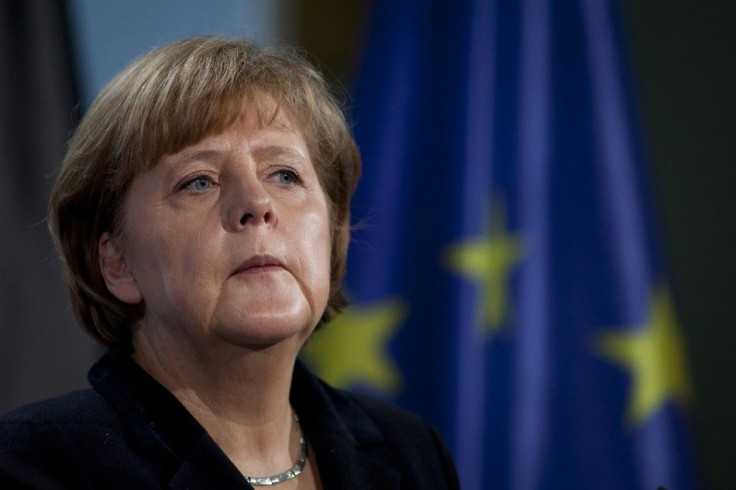The Silent Killer: European Austerity's Poster Child, Ireland, May Sink Stiff Economic Measures

Austerity has taken one hell of a battering over the last week.
Elections in Greece and France on May 6 rewarded candidates bent on dismantling the German-led Fiskalpakt, or fiscal pact, founded on painful budget cuts in return for bailouts.
At one end, Greece -- the very epitome of irresponsible spending -- voted in a fractured mess of mostly anti-austerity parties and fringe extremists, which is still unable to form a government.
And at the other end, Francois Hollande swept into the Elysee Palace as the leader of an anti-austerity army, rallying his supporters who whooped and cheered from the Bastille as he declared, Austerity can no longer be the only option ... my mission is to give to Europe the dream of growth.
Under siege, Germany's Chancellor Angela Merkel has been forced into defensive mode. While she offered a carrot in the form of talks to Hollande, her finance minister, Wolfgang Schaeuble, waved the stick at Greece -- hinting at its exit from the euro zone if it abandoned the raft of government spending cuts imposed by a European Union wherein Germany wields the most clout, and the most money.
But while Paris and Athens have rebelled against Berlin-inspired discipline, one country has embraced the austerity model without, it seems, without so much as a murmur.
Ireland -- the Celtic Tiger so viciously declawed after its housing bubble imploded in 2008 -- has taken the harsh medicine dutifully and, unlike its testy European peers, grimly borne budget cuts and tax hikes with minimal protest.
In December 2010, the government accepted an €85 billion loan from the EU and International Monetary Fund in exchange for budget cuts amounting to €15 billion.
And, on the surface, the strategy of cuts, cuts, and more cuts appears to be working. The country's underlying budget deficit last year fell to 9.4 percent of gross domestic product, below the target of 10.6 percent agreed to with the EU and IMF.
Added to this, Ireland's unemployment rate was down slightly to 14.2 percent from 14.3 percent in December; it has avoided recent euro-zone downgrades by Fitch and S&P; and its 10-year government bond yields have fallen to less than 7.0 percent from 14.5 percent.
Ireland is not doing too badly, according to Cillian Ryan, dean of liberal arts and sciences at the University of Birmingham in England. They have managed to find something to replace the cutbacks in government spending, he said.
They are not out of the woods, but they are in a better position than some others, precisely because they have managed to see an increase in private-sector output, to compensate for public-sector cuts, which has largely eluded other problematic European economies including the UK, Ryan said.
But it's not all roses in Éire.
The nation's central bank recently said that Ireland's economy is barely breathing, and it slashed its GDP growth outlook for this year to 0.5 percent. Its falling bond yields, while encouraging, are still way above the 5.5 percent to 6.0 percent paid by supposed basket cases Spain and Italy.
And as for the falling budget deficit, once you factor in last year's bank recapitalization, that figure is much higher, at about 13 percent of GDP, according to Economist Intelligence Unit expert Robert O'Daly.
In the first half of 2011, the Irish economy returned to growth thanks to its strong export performance, O'Daly said. But it was back in recession in the second half of the year, and the outlook for 2012 is far from rosy.
He added, Without economic growth, permanently reducing the government deficit and debt will be virtually impossible.
With the coming referendum to allow Ireland to ratify the European Fiscal Compact by amending its constitution set for May 31, the country's apparent acquiescence to strict cuts could evaporate faster than Nicolas Sarkozy's swagger on France's election day.
Given the wave of pro-growth talk emanating from the continent, the people of Ireland may decide they too want a piece of what Hollande et al are offering.
The signs are already there. For instance, one-half of Irish households have refused to obey the March 31 deadline to pay a €100 local service charge.
Added to this symbolic protest, support for the coalition partners Fine Gael and Labour has plummeted.
Meanwhile, Sinn Fein has made huge gains running on an anti-EU, anti-austerity ticket.
Public attitudes may be hardening in Ireland ... the Irish referendum on the euro zone 'fiscal compact' at the end of May will be a huge test, O'Daly said.
A 'No' vote would leave Ireland without access to the European Stability Mechanism [or ESM] should the country need additional external financial support after the current bailout expires at the end of 2013, and it could drive away foreign direct investment, he noted.
The latest blow to the austerity consensus came on Wednesday, after Merkel's coalition partner, the Free Democratic Party, or FDP, refused to support German parliamentary ratification of the Fiskalpakt on May 25.
Citing Hollande's anti-austerity, pro-growth victory, the FDP wants to postpone any vote until after Ireland goes to the polls.
This scuppers the chancellor's wish for a symbolic affirmation of austerity in Germany, which was to be swiftly followed by a simultaneous vote in Italy, both of which could have pressured the Irish into a Yes vote on May 31.
While Athens and Paris have grabbed the limelight, investors and politicians would do well to pay more attention to the silent killer lurking in Eire.
Come June, a No vote from austerity's poster child could not only spell the end of the fragile fiscal consensus, but also plunge Europe into its deepest political crisis of confidence yet.
© Copyright IBTimes 2025. All rights reserved.





















